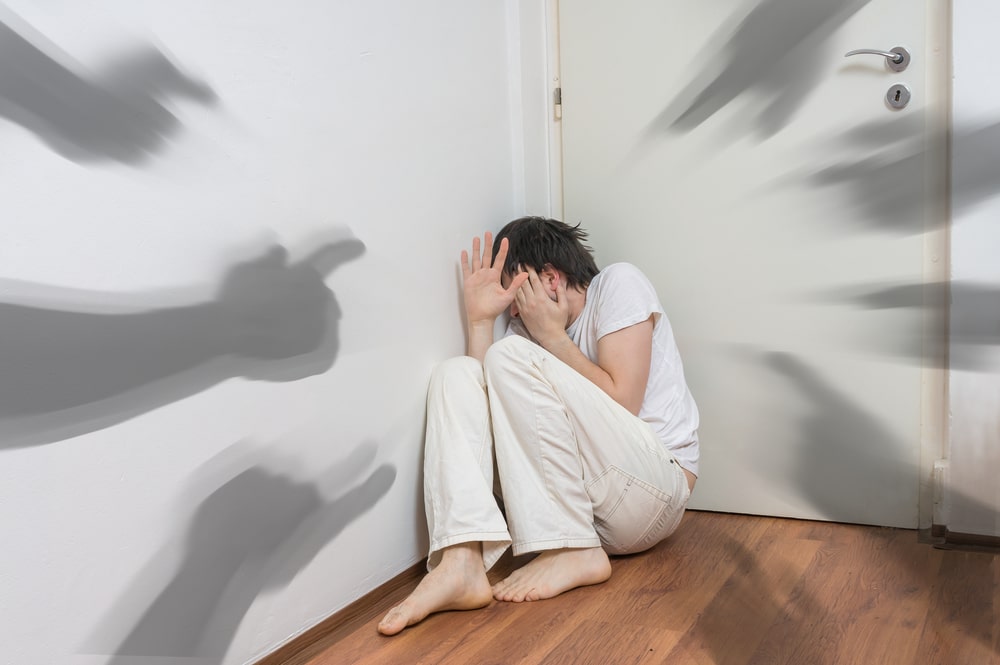Psychosis is a term used to encompass a set of symptoms that are characterized by a disconnection from reality. When a teenager experiences psychosis it is typically referred to as a psychotic episode. The primary symptoms that denote psychosis and occur during a psychotic episode include delusions (false beliefs), hallucinations (perception of a nonexistent sensation, object or event), incoherent speech, and/ or displays of behaviors that are inappropriate for the situation. While psychosis is not itself considered to be a mental health disorder, but rather a symptom, its presence could indicate a teen may be struggling with a psychotic disorder. Medical News Today provides the following list of disorders that could cause psychosis:
- Delusional disorder: characterized by an inability to distinguish between what is real from what is imagined.
- Bipolar psychosis: characterized by severe and disabling highs (mania) and lows (depression).
- Schizophrenia: characterized by disordered thoughts, abnormal behaviors, and anti-social behaviors.
- Schizoaffective disorder: characterized by delusions, hallucinations, formal thought disorder, or negative symptoms that co-occur with depressive and/ or manic symptoms.
- Severe depression: characterized by persistently depressed mood or loss of interest in previously enjoyed pastimes, significantly interfering with a teen’s ability to function in his or her daily life.
- Substance-induced psychosis: characterized by delusions and/ or hallucinations due to the direct effects of a substance or withdrawal from a substance in the absence of delirium.
Medical News Today further explains that psychosis could also occur as a result of other disorders, such as human immunodeficiency virus (HIV), malaria, syphilis, some types of epilepsy, brain tumors, stroke, and multiple sclerosis (MS). Research suggests that “although the incidence rates for psychosis peak around the age of 22 years, one-third of psychotic disorders have an onset before age 18.” Further, several studies indicate that psychotic experiences are more common in children and young adolescents compared with adults. Mental Health America provides the following early warning signs that could be indicative of a psychotic disorder:
- Feeling like their brain is not working.
- Feeling like their mind or eyes are playing tricks on them.
- Seeing things and hearing voices that are not real.
- Hearing knocking, tapping, clicking or their named being called.
- Confused thoughts.
- Vivid and bizarre thoughts and ideas.
- Sudden and bizarre changes in emotions.
- Peculiar behavior that seem unusual.
- Increased sensitivity to light, sounds, smells or touch.
- Concept that people are “out to get them.”
- Fearfulness or suspicion that isn’t warranted.
- Withdrawal from others.
- Severe problems in making and keeping friends.
- Difficulty speaking, writing, focusing, and/ or managing simple tasks.
Psychotic disorders can have a profound impact on the mental health of teenagers, as psychotic symptoms cause “disruption across a teenager’s life, from school to friendships to family.” Early identification, intervention, and comprehensive support services are essential in managing symptoms, improving functioning, and promoting the overall well-being of teens with psychotic disorders.
For Information and Support
Every family in need of mental health treatment must select a program that will best suit the needs of their family. When one member of a family struggles, it impacts everyone in the family unit. To maximize the benefits of treatment we work closely with the entire family to ensure that everyone is receiving the support they need through these difficult times.
Seeking help is never easy, but you are not alone! If you or someone you know needs mental health treatment, we strongly encourage you to reach out for help as quickly as possible. It is not uncommon for many mental health difficulties to impact a person’s life, long term. Pursuing support at the beginning of one’s journey can put the individual in the best position to learn how to manage themselves in a healthy way so they can go on to live happy and fulfilling lives.
OUR KNOWLEDGEABLE ADMISSIONS TEAM CAN BE REACHED 24/7 AT INFO@PACIFICRTC.COM OR CALL: 800-531-5769
We are available to answer any questions you may have regarding mental health treatment and our residential program, anytime. Contact us today using the form to the right.






